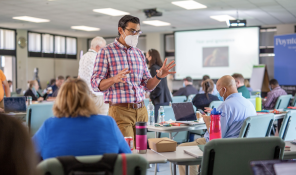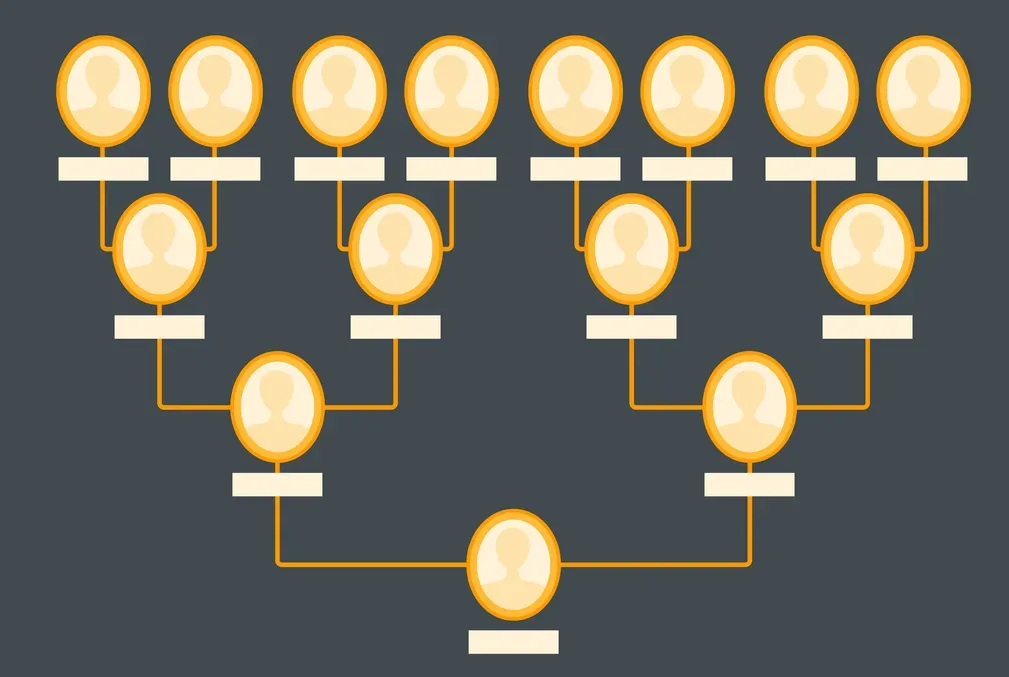$4M awarded to 8 impact labs to combat social ills
Stanford Impact Labs is funding eight new partnerships, including projects to reduce partisan animosity, decrease racial and economic segregation in public schools, and lift the veil on tax havens.
Misinformation on the internet. Anti-democratic beliefs. Financial contagion. Educational and health inequality.
These are just a few of the threats facing the United States and the world that Stanford Impact Labs aims to tackle with its latest investments, which total $4 million for eight projects.
A core initiative of the university’s Long-Range Vision, Stanford Impact Labs supports projects led by Stanford researchers and partners at nonprofit organizations, government agencies, businesses, and other universities. These teams, known as impact labs, develop practical plans to address pressing social problems.
The initiative advances Stanford’s vision of becoming a more purposeful university with a commitment to making a public impact. Since 2019, Stanford Impact Labs has awarded $9.5 million in start-up funding to 19 projects, including the most recent group of recipients. This funding supports labs that have strong partnerships in place and that have made significant progress on defining and researching the problem they want to address. Each lab receives $500,000 over two years, as well as mentoring and other resources to help keep their projects on track.
“The past three years have demonstrated just how much demand there is among faculty and their partners in government, nonprofits, and the private sector to do solutions-focused research on important social problems,” said Jeremy Weinstein, faculty director of Stanford Impact Labs and a professor of political science in the School of Humanities and Sciences. “I am especially struck by the diversity of social problems our teams are tackling and the geographic reach of the partners they are working with. It gives me confidence we are well-positioned to invest these resources in support of research that will make a tangible difference in people’s lives.”
One partnership with newly awarded start-up funding has already begun making such a difference, Weinstein said.
The partnership is between the Department of Housing & Community Development in Oakland, California, and the Changing Cities Research Lab, which Stanford sociologist Jackelyn Hwang established in 2020 with assistance from the Stanford Impact Labs fellowship program. They began working together two years ago to address residential instability in the East Bay city. The start-up funding will support efforts to advance their work.
“We aim to place actionable data at the forefront of how we serve Oakland residents,” said Shola Olatoye, director of the Department of Housing & Community Development. “We are excited to continue our research partnership with Stanford’s Changing Cities Research Lab led by Dr. Hwang, which supports our equity-driven investment approach to affordable housing.”
Following are the names and short descriptions of the newly funded labs:
- The Strengthening Democracy Challenge team consists of the nonprofit Civic Health Project and political scientists, psychologists, sociologists, and economists from Stanford, MIT, Northwestern, and Columbia. They are conducting an online experiment involving more than 32,000 Americans to evaluate interventions aimed at reducing anti-democratic attitudes, support for partisan violence, and partisan animosity. They plan to build partnerships with five nonprofit organizations to turn those insights into practical, bridge-building interventions.
- The Stanford Impact Lab on Equitable Access to Education will help the San Francisco Unified School District assess its new zone-based student assignment system. The system, which aims to reduce racial and economic segregation in schools, would allow families to choose from a set of schools close to where they live rather than be assigned a school through a citywide lottery.
- The Tax Havens and Global Capital Allocation in Europe team is a partnership between the Global Capital Allocation Project and the European Central Bank. The team aims to lift the veil on tax havens to more clearly reveal where capital is flowing across the globe. Their work could inform efforts to regulate financial markets, prevent financial contagion, and build equitable financial systems.
-
Alex Mahadevan, director of MediaWise at the Poynter Institute and a member of the Empowering Diverse Digital Citizens Lab, discusses media literacy with attendees at a Poynter Institute event. Photo by Chris Kozlowski / Poynter Institute - The Empowering Diverse Digital Citizens Lab will test digital media literacy interventions designed to equip people with skills and resources to avoid misinformation and foster their trust in credible news and information. It's a partnership between the Stanford Social Media Lab and the Poynter Institute's MediaWise initiative, which has long-standing working relationships with AARP, the American Library Association, and the PBS NewsHour Student Reporting Labs.
- The Changing Cities Research Lab will tackle residential instability in Oakland, California, in a partnership with the City of Oakland’s Department of Housing & Community Development. This lab builds on Jackelyn Hwang’s previous work, which examined trends in residential instability in Oakland over the past 20 years and was incorporated into the Department of Housing & Community Development’s strategic action plan.
- The Improving Educational Equality in New York State team is a partnership between the Educational Opportunity Project and the New York State Education Department. Leveraging datasets on students, teachers, classrooms, and schools, the lab will explore how education systems influence disparities in educational opportunities and outcomes from kindergarten through high school across the New York State education system.
- The Health Care Fairness Impact Lab is a partnership between physicians, economists, and statisticians from Stanford School of Medicine, Stanford Health Policy, and Stanford Health Care. The lab will investigate algorithms used to guide two very important medical decisions: whether to admit patients to the emergency room and whether to refer a patient for chronic kidney disease treatment. Lab members will investigate the impact of the algorithms on access to care and on health disparities among marginalized racial and ethnic groups.
- The Digital Literacy Curriculum Lab is a partnership between the Stanford History Education Group, the Los Angeles Unified School District, and Chicago Public Schools that aims to help students sort fact from fiction online. Lab members will document students’ online practices and observe classes focused on digital literacy to develop research-tested Civic Online Reasoning materials for art, English, math, science, social studies, and other subject areas tailored to the needs of students in each district.
Learn more about the newly funded labs, as well as other programs and funding opportunities offered through the initiative, by visiting the Stanford Impact Labs website.
Stanford Impact Labs is a university-wide initiative established in the School of the Humanities and Sciences.




